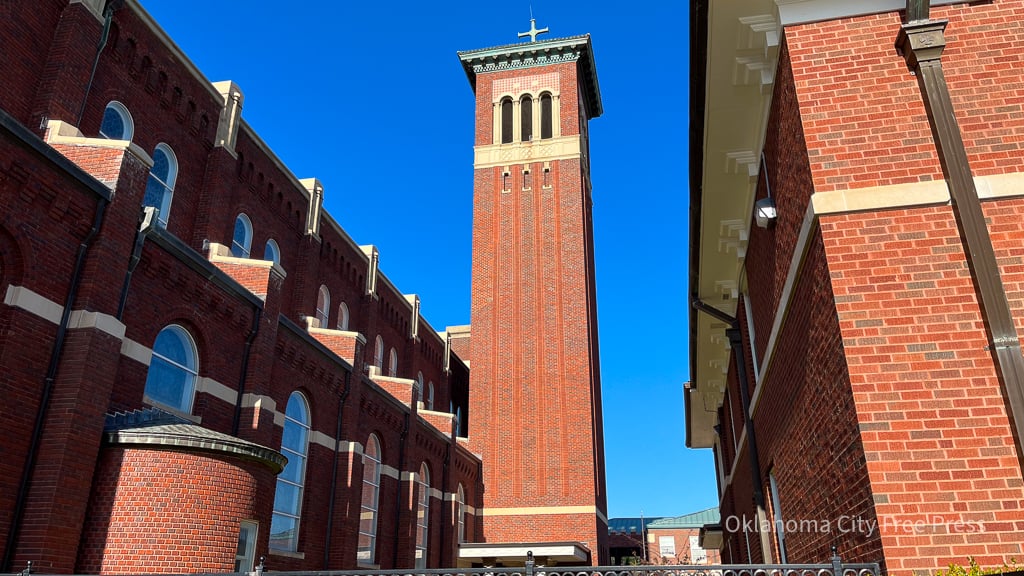Last Updated on August 6, 2023, 2:50 AM | Published: May 12, 2023
OKLAHOMA CITY (State Capitol) — There’s been broad support among the Republican supermajority in both chambers for the private school tax credit proposal. Disagreement has come around possible income caps or the overall cost of the program. But if passed, it would be a departure from recent attempts by the Legislature to crack down on tax credits, mostly for economic development.
House Bill 1934 passed both the House and Senate. House Speaker Charles McCall, R-Atoka, is holding on to the Senate-amended bill in a rarely used parliamentary move before it is sent to the governor. That’s ostensible as a negotiating tactic with the Senate on other pieces of educational funding in this session.
The bill establishes a tiered system of refundable tax credits for private school expenses. The latest version has a cap of $7,500 per child for families with income below $75,000 a year. It steps down in four tiers to credits of $5,000 per child for families with income below $250,000 a year. The median household income in Oklahoma is $57,000, according to the U.S. Census Bureau.
A refundable tax credit lets a taxpayer lower their tax burden by that full amount. Any amount beyond what is owed in state income taxes would be refunded to the taxpayer.
Tax Credit Accountability
HB 1934 puts most of the responsibility for tracking the private school tax credits on the Oklahoma Tax Commission. Estimates by the Tax Commission show it would take about $1 million to set up the program and about $706,000 per year to run it.
“Obviously, it’s going to take human power and human capital; you’re going to need individuals who can track that information,” House Minority Leader Cyndi Munson, D-Oklahoma City, said Tuesday. “Is it just taxpayers turning in receipts, or are they doing that while they file their taxes? How do we ensure that those dollars are actually going where we’ve said they need to go? The lack of accountability is obviously problematic.”
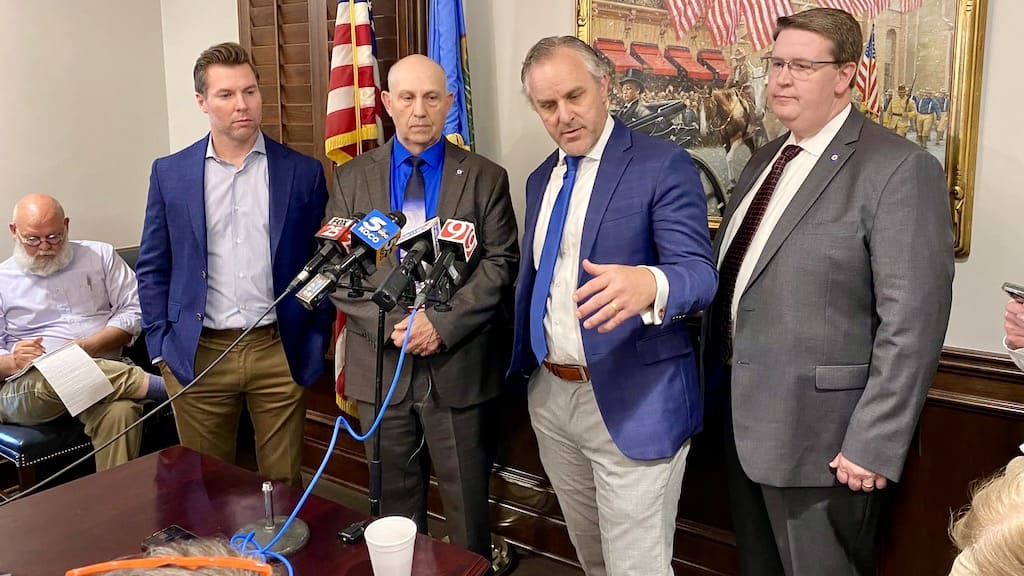
Senate President Pro Tempore Greg Treat, R-Oklahoma City, said HB 1934 has a provision where lower-income families get priority in qualifying for the tax credit. He called it a “progressive cap” where families making under $75,000 get first priority. Treat said it would be up to the Tax Commission, through its administrative rulemaking process, to figure out the details.
“That’s the design of this, absolutely: To allow families who could not afford it or have the tax burden necessary to get that refund to attain a quality education if their parents so desire,” Treat said in a Senate debate on April 27. “You don’t have to be wealthy, you don’t have to have a huge tax liability. You can get the credit regardless of your ability to pay for that private tuition on your own.”
HB 1934 would allow parents to qualify for up-front payments before taxes are due each April. In a fiscal impact statement, the Tax Commission said it had several concerns with administering the program.
“It is unclear how the OTC should administer advance credits claimed by multiple taxpayers for the same student, such as credits claimed by divorced parents who each pay a portion of qualified expenses,” the summary said. “Verifying taxpayer compliance with the requirements to claim the proposed credits presents further administrative challenges. The OTC may be required to review all public school student enrollment information to determine that a student who is claimed by a taxpayer receiving the credit is not enrolled in a public school.”
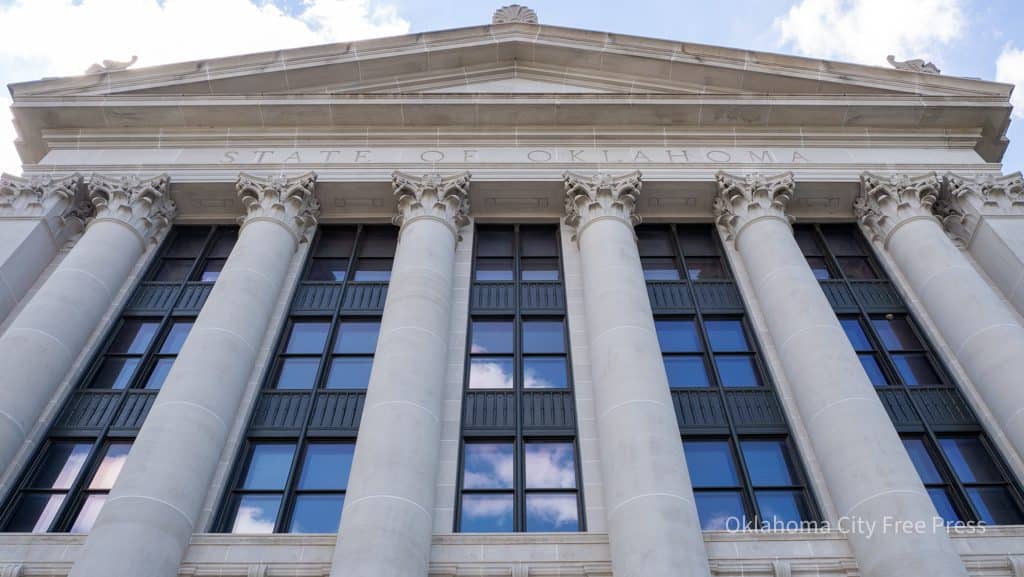
The bill would also provide a $1,000 per child tax credit for educational expenses for homeschooling. It caps that credit at $5 million per year. The Tax Commission estimated total credits for homeschooling could total $33.1 million.
“Information is not available to verify homeschool enrollment, and it is unclear whether a student who is enrolled in a public school for only a portion of the school year is eligible for the proposed credits,” the Tax Commission said in its fiscal impact statement.
The refundable nature of the private school tax credits is modeled after the federal Earned Income Tax Credit. That credit gives working families a refundable tax credit if they remain employed but don’t meet thresholds for other low-income programs. Oklahoma’s EITC is tied to the federal version of the tax credit but has one of the lowest rates among the 31 states that have it.
The state had $13.2 million in EITC credits in 2021, according to the Oklahoma Tax Commission. More than 300,000 Oklahoma taxpayers qualified for it.
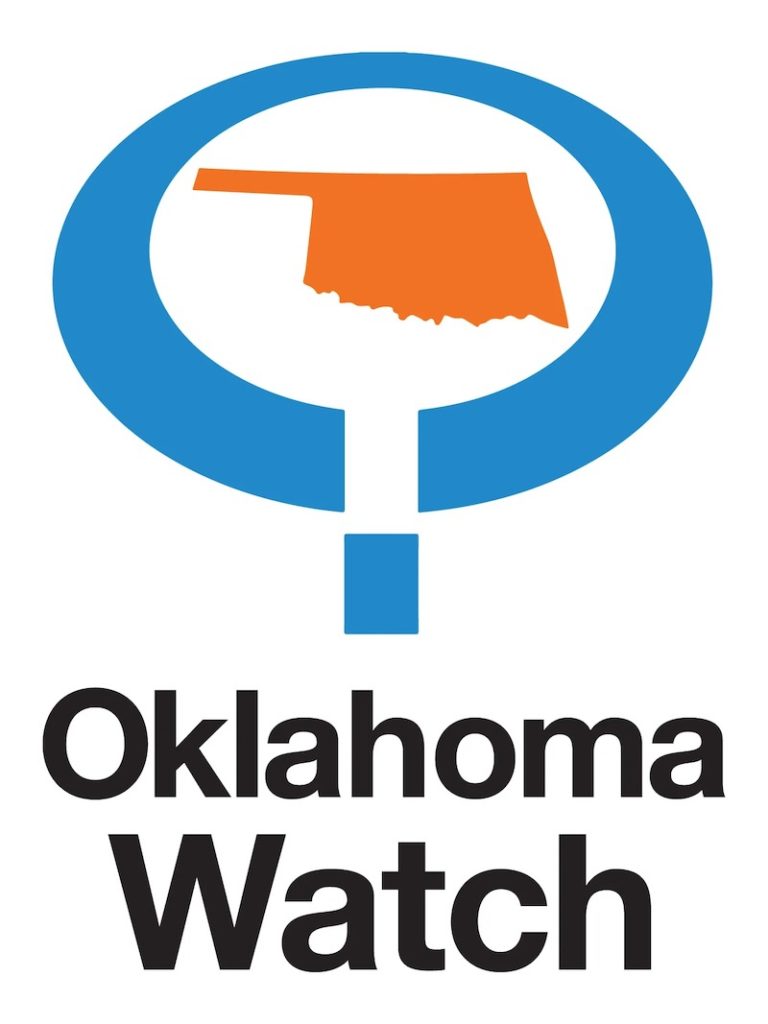
Another education-related benefit has income limits far below the proposed private school tax credit. The Oklahoma Promise scholarship program pays for tuition at Oklahoma colleges and universities for high school students who qualify based on their grades and maintain a certain grade point average once they get to college. It has family income limits between $60,000 and $80,000, depending on how many children are in the family. The program benefited more than 14,000 students last year at a cost of $62.7 million, according to the latest report. About 7% of the recipients attend private colleges or universities.
Some Republican lawmakers said not all private school students come from rich families. Sen. Ally Siefried, R-Claremore, said she was homeschooled, went to public school, and then graduated high school from a small, private Christian high school where she played basketball.
“I was not privileged,” Siefried said in the April 27 Senate debate. “The narrative that private school is for the rich kids is blatantly false…It was simply my parents wanting something different for me. School choice is not about tearing down public schools. It’s about making sure students have as many opportunities as possible.”
Voucher or Tax Credit?
Lawmakers advanced the private school tax credit proposal after it became clear vouchers faced a tougher legislative route. Vouchers are direct payments made by the state government to private schools on behalf of qualified students. Oklahoma has had a limited voucher program for children with disabilities, called the Lindsey Nichole Henry Scholarship Program, since 2010.
Broader voucher bills stalled again this year in the Oklahoma Legislature, in part over concerns by rural Republican lawmakers whose districts have few, if any, private schools. There’s a perception among some conservative lawmakers that vouchers could allow the state government to intervene in private schools through regulation. Rural lawmakers also had concerns about vouchers siphoning funding for public schools.
“We know vouchers are not possible, so we rebranded it as tax credits,” said Sen. Carri Hicks, D-Oklahoma City, before the bill’s Senate vote on April 27. The bill passed 36-10 in the Senate, with two Republicans voting against it.
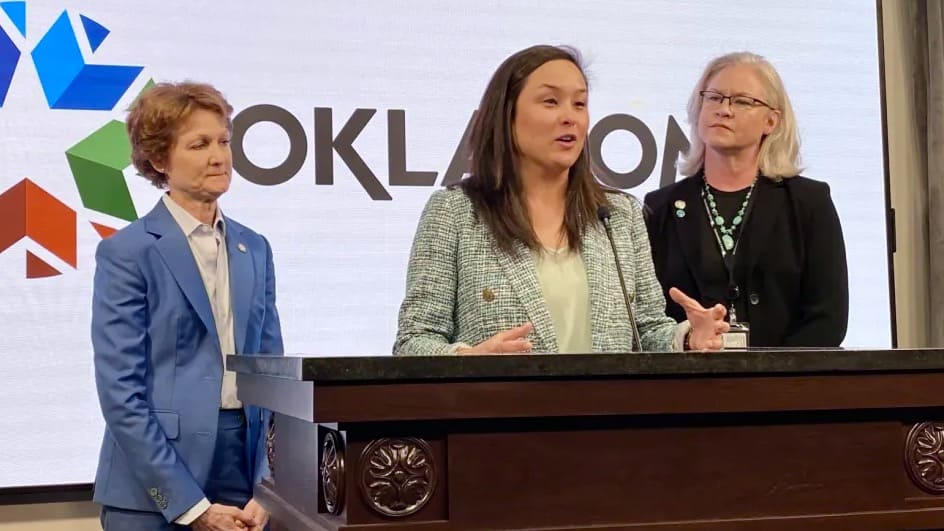
Individual state income tax credits for private school expenses face fewer questions because the tax dollars never enter private schools. That also allows lawmakers to get around state constitutional prohibitions against directly funding religious entities providing educational services.
Critics have called HB 1934 a tax giveaway that will mostly benefit parents with children already in private schools. The bill caps the overall cost of the program at $150 million in fiscal year 2024, rising to $250 million in 2026. More than 32,000 students are in private elementary or secondary schools in Oklahoma.
“I think we’re opening up a pretty dangerous road financially,” Sen. Julia Kirt, D-Oklahoma City, said when the Senate debated the measure at the end of April. “I think what we’re setting up is sending money, through families, with very little follow-up to know how it’s being spent on the other end. That kind of accountability is unacceptable, especially when it comes to our kids.”
Republican Gov. Kevin Stitt said he believed in the free market, but he didn’t have a detailed response when a reporter asked him if the Legislature’s private school tax credit proposal might disrupt the free market that exists in private schools. Critics have called the tax credit a subsidy for private schools.
“The rich folks already have school choice; they already have options,” Stitt said in March. “I’m thinking about the moms who are stuck in a ZIP code in Tulsa, and during COVID, their school was shut down, and other schools were open. If their kid’s not thriving, let’s give them another option.”
Best Practices For Incentives
Concerns with tax credits and incentives led Oklahoma lawmakers to tighten oversight and qualification for incentives in the past. Part of the state budgetary problems with incentives are the unknowns of when a company or individual would take the incentive and affect estimated tax revenues. In response, the Legislature set up an Incentive Review Committee in 2004 and is in the eighth year of the Incentive Evaluation Commission. The commission directs an outside consultant to take a comprehensive look at various tax incentives each year. It makes recommendations to the Legislature on the ongoing value or utility of the programs.
Generally, evaluations of tax incentives emphasize accurate data and transparency. The highest-rated incentives have sunset provisions and prioritize data collection as a self-enforcement mechanism.
To be sure, Oklahoma lawmakers, flush higher tax revenues coming out of the coronavirus pandemic, have pre-funded the last few big economic development incentives. That includes $698 million for the LEAD Act, set to go to a Panasonic battery megaproject at the MidAmerica Industrial Park near Pryor. Legislators this week are contemplating a new $180 million incentive called the Perform Fund, thought to help land a solar panel manufacturing plant operated by Enel North America near the Port of Inola.
Accountability in Other States
More than 30 states have enacted some type of tax credit or vouchers for private schools. Most of them have income limits lower than the Oklahoma proposal or target certain types of students.
Voters in Arizona used a referendum to reject a legislative effort to expand that state’s school voucher program in 2018. But voucher proponents kept trying and won an expansion last year under outgoing Republican Gov. Doug Ducey, who was term-limited.
In Florida, the Orlando Sentinel newspaper investigated the state’s voucher program in 2017 and found lax oversight at many schools that popped up to take advantage of the system. It found some schools hired teachers without credentials, falsified fire, health and safety reports and held schools in aging strip malls. Despite that, Florida lawmakers approved an expansion of the program this year with the support of Republican Gov. Ron DeSantis, a likely presidential candidate in 2024.
Munson and other Democrats in the House and Senate worry Oklahoma’s private school tax credit will subsidize families already able to send their children to private schools. Private schools can remain selective in which students they accept, and few will want to expand with additional teachers or bigger facilities if they are unsure of the demand, critics contend.
“We have to be truthful with ourselves. Are we actually helping lower-income families access private school?” Munson said.
But Sen. Julie Daniels, R-Bartlesville, said Infinity Generation Prep School in Oklahoma City and Crossover Prep in Tulsa both have waiting lists. Daniels authored a voucher bill this year that didn’t advance.
“I believe it will lift all boats, and I certainly support Oklahoma joining this movement across the United States to make sure parents have the right to get the best education that they believe will benefit their child,” Daniels said during the Senate debate on HB 1934.
Published in partnership with Oklahoma Watch under Creative Commons license. Free Press publishes this report as a collaborative effort to provide the best coverage of state issues that affect our readers.
Paul Monies has been a reporter with Oklahoma Watch since 2017. He covers state agencies and public health. Call or text him at (571) 319-3289 or email [email protected]. Follow him on Twitter at @pmonies.
